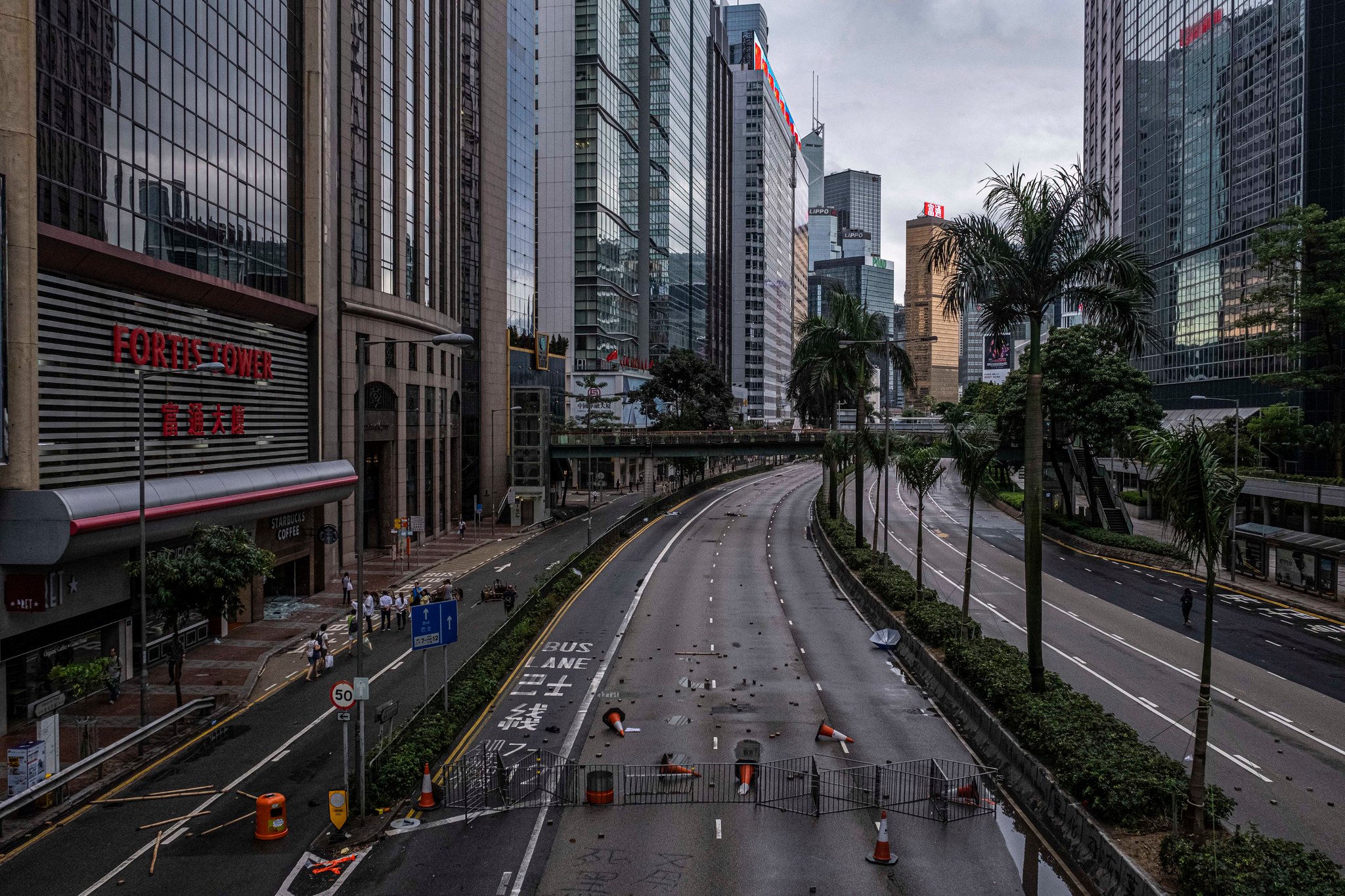Is Hong Kong in its ‘death throes’?

Photo: Lam Yik Fei, New York Times
Two months into the Hong Kong protests this year, the respected lawyer Dan Harris wrote on the China Law Blog, “Not sure why nobody has just come out and said this yet, but Hong Kong as an international business and financial center is no more.” This week, he elaborated in comments to the Guardian: “It’s finished as an international business center because it was based on trust, safety and the rule of law and that’s all gone. Companies are looking to leave. No one is thinking of moving in.”
Veteran journalist Ian Johnson takes a similar view in the New York Review of Books, and he blames Beijing for neglecting and abusing the city:
We are witnessing Hong Kong’s descent from leading international city to collateral damage in Beijing’s rise to a strident superpower. While the activists have made their mistakes, the Hong Kong protests are mostly an epic failure of China’s soft power…
…[Beijing has] failed to install visionary leaders who might have helped Hong Kong retain its place among the handful of truly key global cities. Instead, the city has been run by a series of Beijing-approved mediocrities, all of whom have either resigned in disgrace or been engulfed in crises. All the city’s chief executives were fatally hampered by having to defer on all important decisions to Beijing, making them more like colonial governors than autonomous rulers of a dynamic metropolis.
This is reflected in the government’s mishandling of the current protests…the protesters’ anger stems from the structural violence that Beijing has stealthily inflicted on them over the past decade. This includes the gradual but steady erosion of liberties [as well as] Beijing’s unwillingness to follow through on written promises of universal suffrage…
In light of this betrayal, we can see the past half year’s violence for what it is…the death throes of a great city, played out on its own streets for the world to see.
Some took issue with Johnson’s description of Hong Kong’s urban core as “about as exciting as a Chinese provincial capital.” Wrote Hong Kong-based author Antony Dapiran, “HK now is the most alive it has been in the 20 years I have lived here. Hong Kong is a contested space & contested spaces are interesting spaces. Arts & culture flourishing. Lively independent media. Engaged grass-roots community groups (the real story behind District Council election results).”
But The China Project’s Anthony Tao points out that the “death throes” analogy is apt: “Hong Kong is indeed as alive now as ever, but sticking with our metaphors, that’s also kind of what a ‘death throe’ is: a final gasping, anguished flurry of life.”
For another perspective, check out Hong Kong writer Karen Cheung’s November 26 piece in the New York Times. “An American journalist once asked me, what if this went on for 30 years?” Cheung writes. “But that isn’t the most terrifying outcome. It is the world that we would live in if we stopped resisting.”





